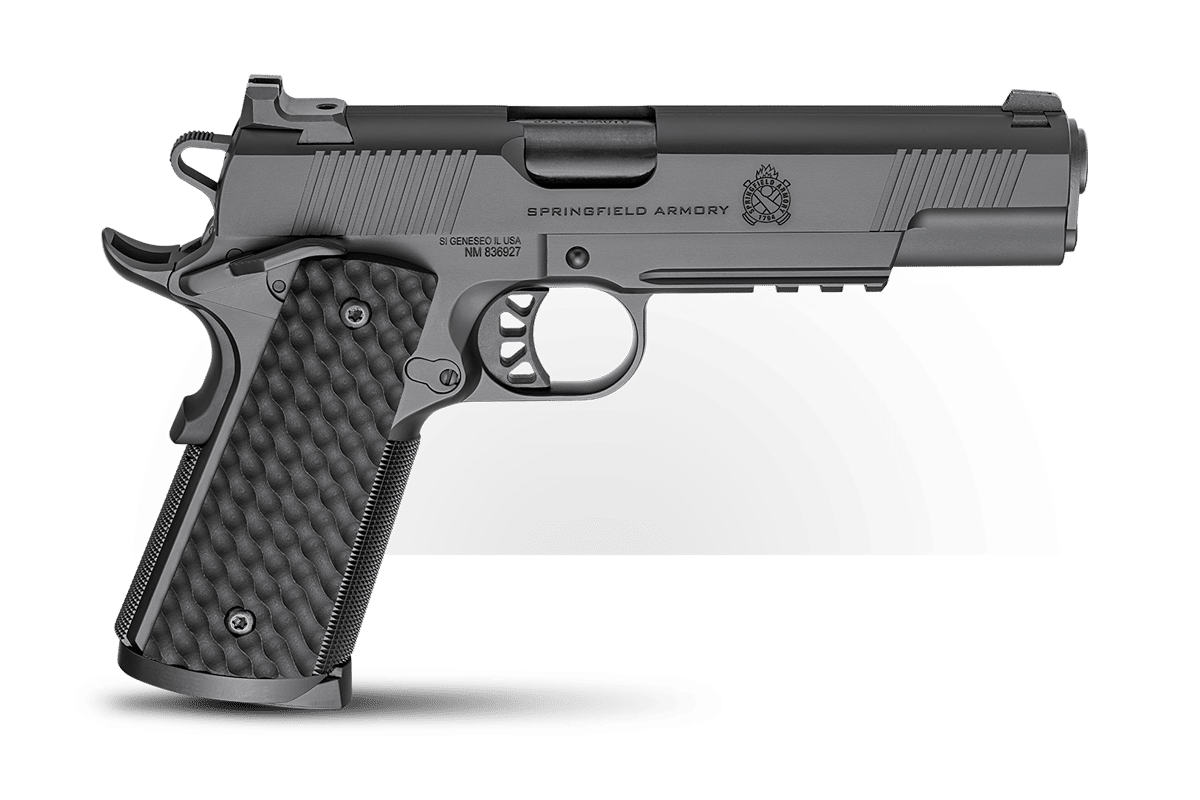Development of the .45 ACP cartridge is entwined with the development of the 1911 pistol. The cartridge was designed in 1904 when John Browning was working to develop a new pistol for the U.S. military. Prior to the acceptance of the new 1911 pistol and the .45 ACP cartridge, the U.S. was using .38-caliber double-action revolvers. However, it was learned in the Philippines that this cartridge was not effective at stopping motivated attackers.
Looking back, the U.S. recognized that something more powerful like the .45 Colt-chambered Single Action Army revolvers was needed, but in a more modern semi-automatic pistol format. The resulting .45 ACP cartridge would find a home in the 1911. It was a near-perfect match: the stopping power of .45 Auto caliber and the near unstoppable 1911 semi-automatic pistol.
.45 Auto vs .45 Colt
The .45 Auto is a rimless, straight-walled cartridge designed for autopistols. Conversely, the .45 Colt is a rimmed cartridge designed to work in revolvers. The original military load for the .45 Auto took shape as a 230-gr. FMJ bullet with a muzzle velocity of around 850 fps and a muzzle energy of around 370 ft-lbs. Not only has the cartridge proven to have excellent stopping power, it’s also very accurate and has been used extensively in bullseye shooting competitions.
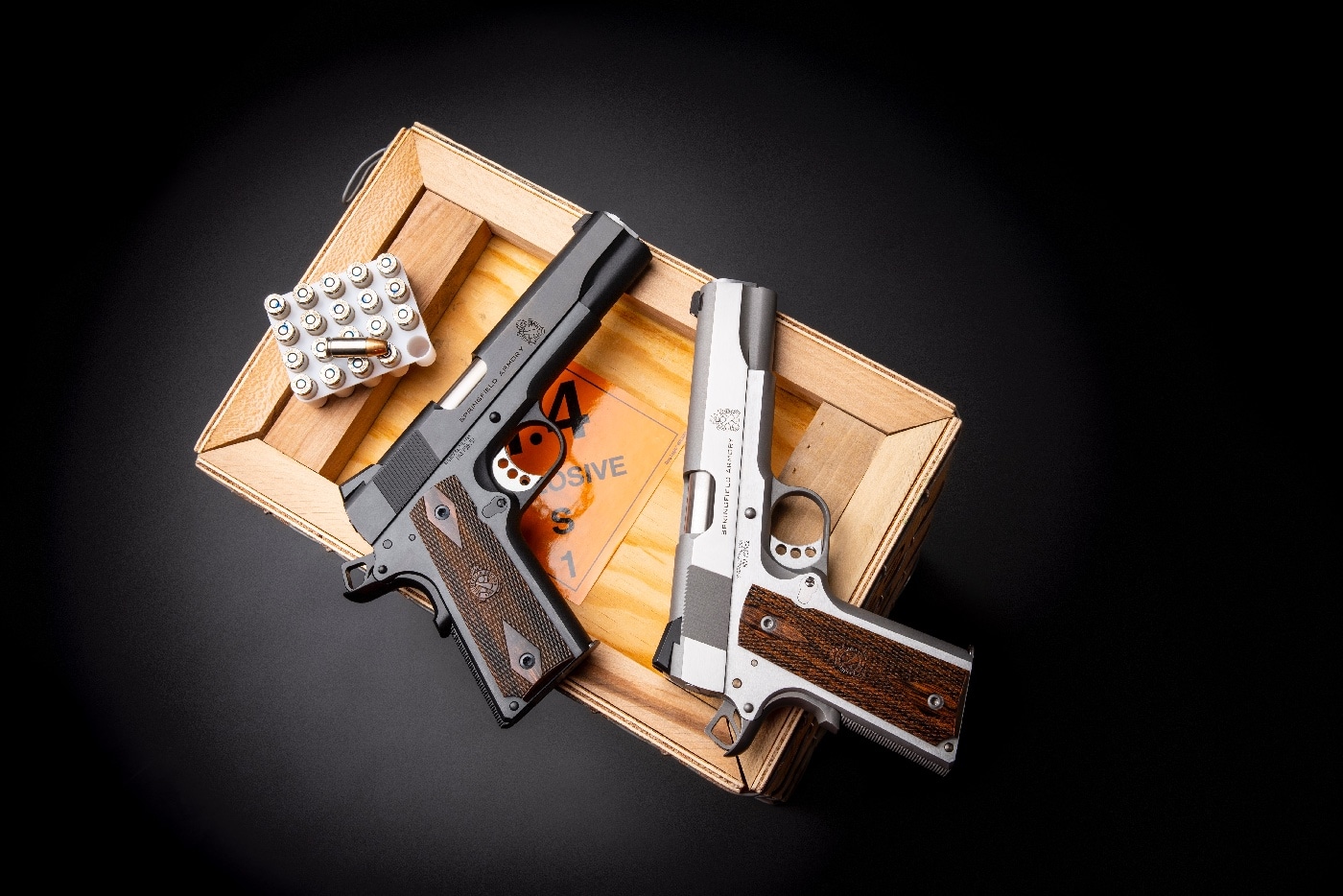
The .45 Colt cartridge was adopted in 1873 for the Single Action Army revolver. There was a reason this revolver was nicknamed the Peacemaker. This caliber ended arguments fast. It was loaded with a 255-gr. bullet which gave it a muzzle velocity of just over 800 fps and around 360 ft-lb of energy at the muzzle. It is easy to see why the U.S. military was set on a pistol chambered in a .45 caliber round. While 850 fps is slow compared to the 9mm or 10mm Auto, the .45 Auto uses a larger and heavier bullet that creates a large wound channel and transfers more energy to where it is needed.
Fortunately, Springfield Armory offers the .45 caliber in a variety of 1911 platforms designed for duty and concealed carry to home defense and competitive shooting.
Original 1911 Mil-Spec Pistol
The Springfield 1911 Mil-Spec handgun is inspired by what John Browning envisioned for the military and was used by G.I.s for more than a century — from the trenches of WWI to the beaches at Normandy, to the Battle of Chosin Reservoir and the Tet Offensive, and beyond.
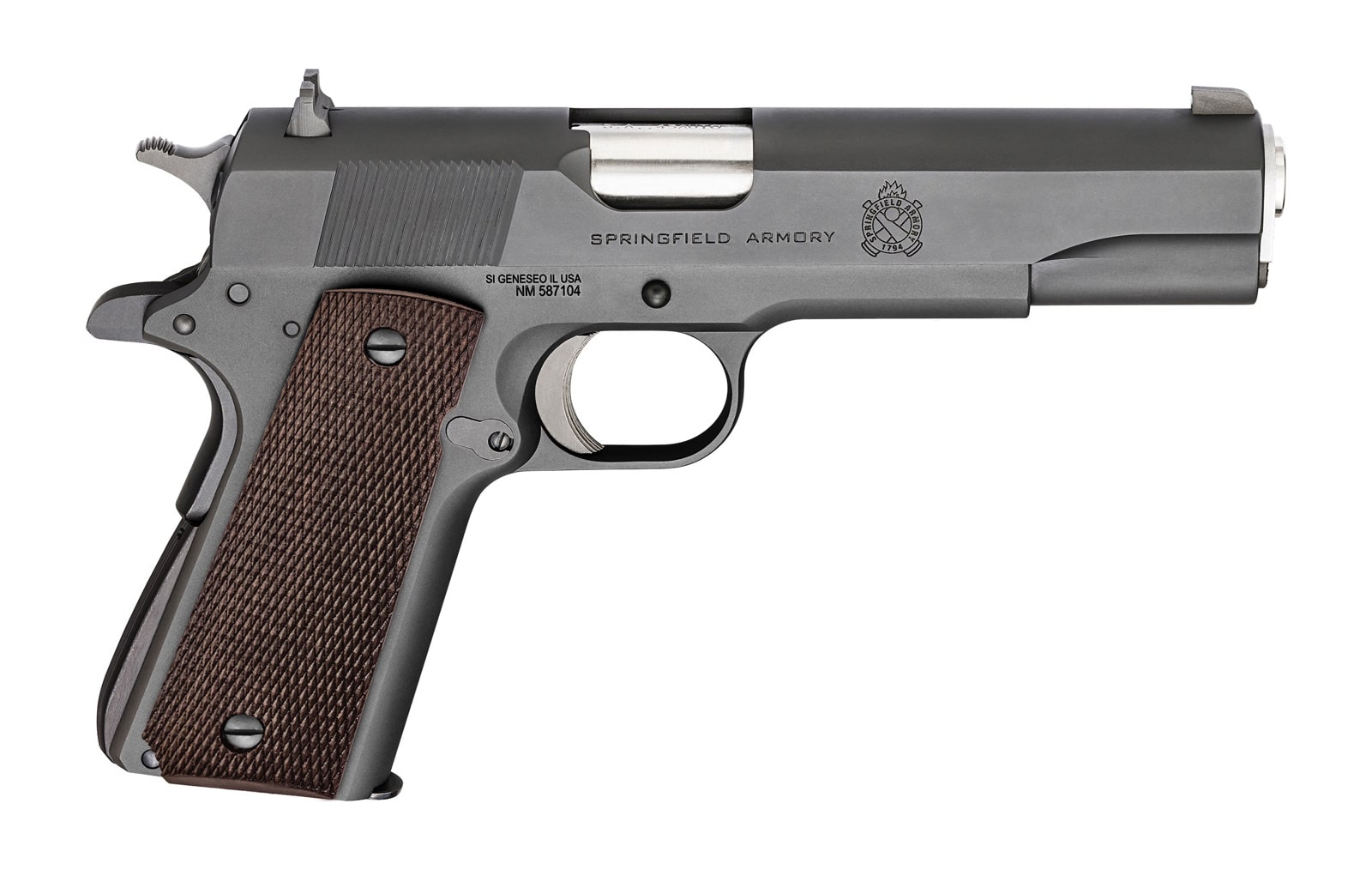
These pistols are recognizable by the short trigger, arched mainspring housing and fixed sights. The Mil-Spec enhances the original 1911A1 design with a match-grade barrel, three-dot sights, and lowered and flared ejection port for optimal cycling. This is a back-to-the-roots style, military-grade 1911.
[Be sure to check out this article on the M1911 vs. M1911A1 to understand the differences between the two models.]
1911 Garrison Guns
Next up the ladder is the 1911 Garrison line. You could consider this an update on the Mil-Spec design with a flat mainspring housing, longer tigger, snag-free sights, and thinner wood grips. The Garrison also offers modern touches like a skeletonized hammer, extended thumb safety, and extended grip safety with raised memory bump to avoid hammer bite.
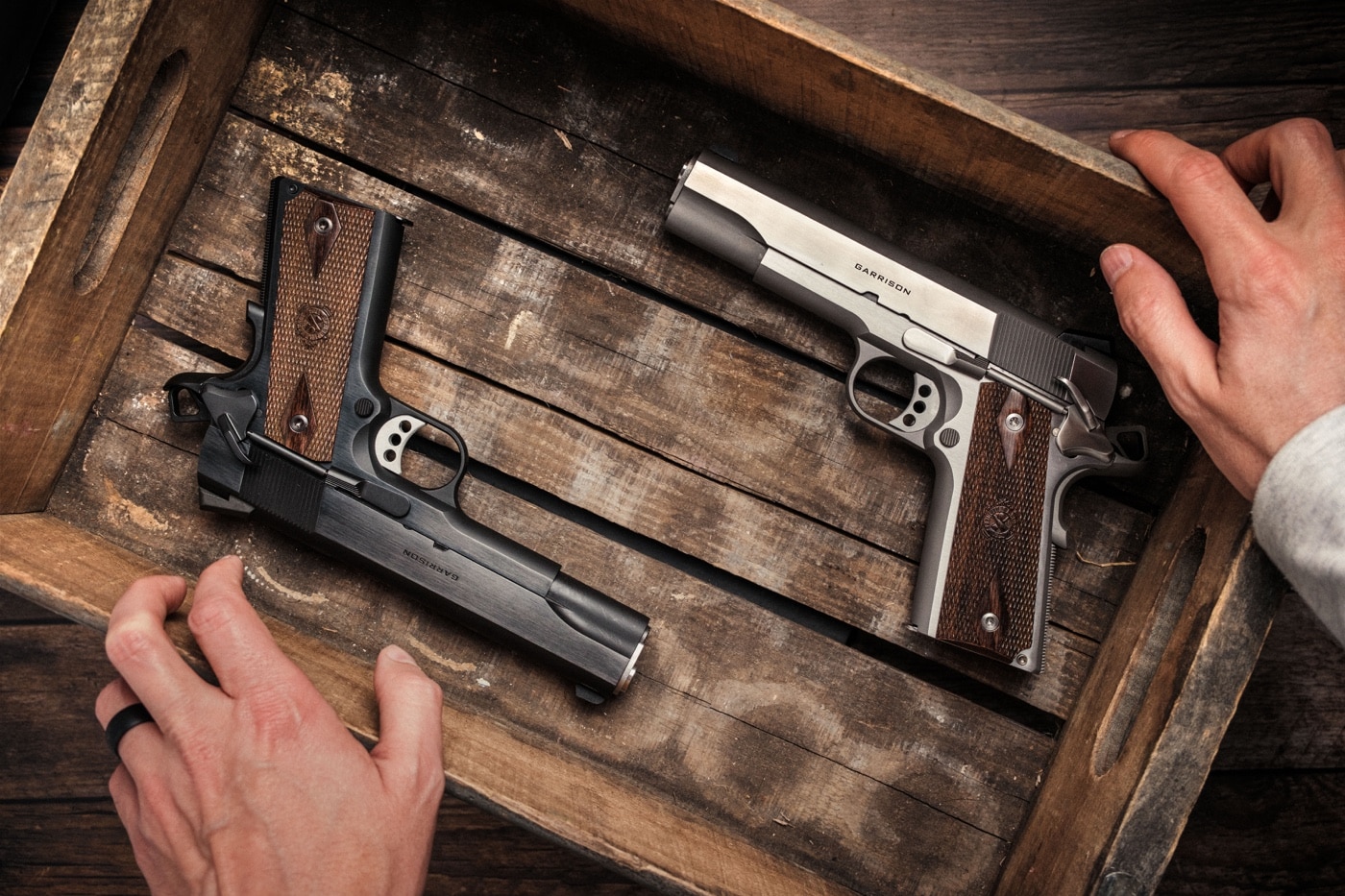
These are heirloom quality 1911s finished in either a classic hot salt blued carbon steel or rust-resistant stainless steel. The Springfield Garrison is an option if you want an all-business 1911, but upgraded with modern touches. It is offered in both 5” and 4.25” models.
The Ronin Line
If you are looking for more modern features yet still want that classic style, consider the Ronin. The two-tone finish sets the Ronin pistol apart with good looks and performance. The tactical rack rear sight and fiber optic front sight offer a great sight picture with fast target acquisition.
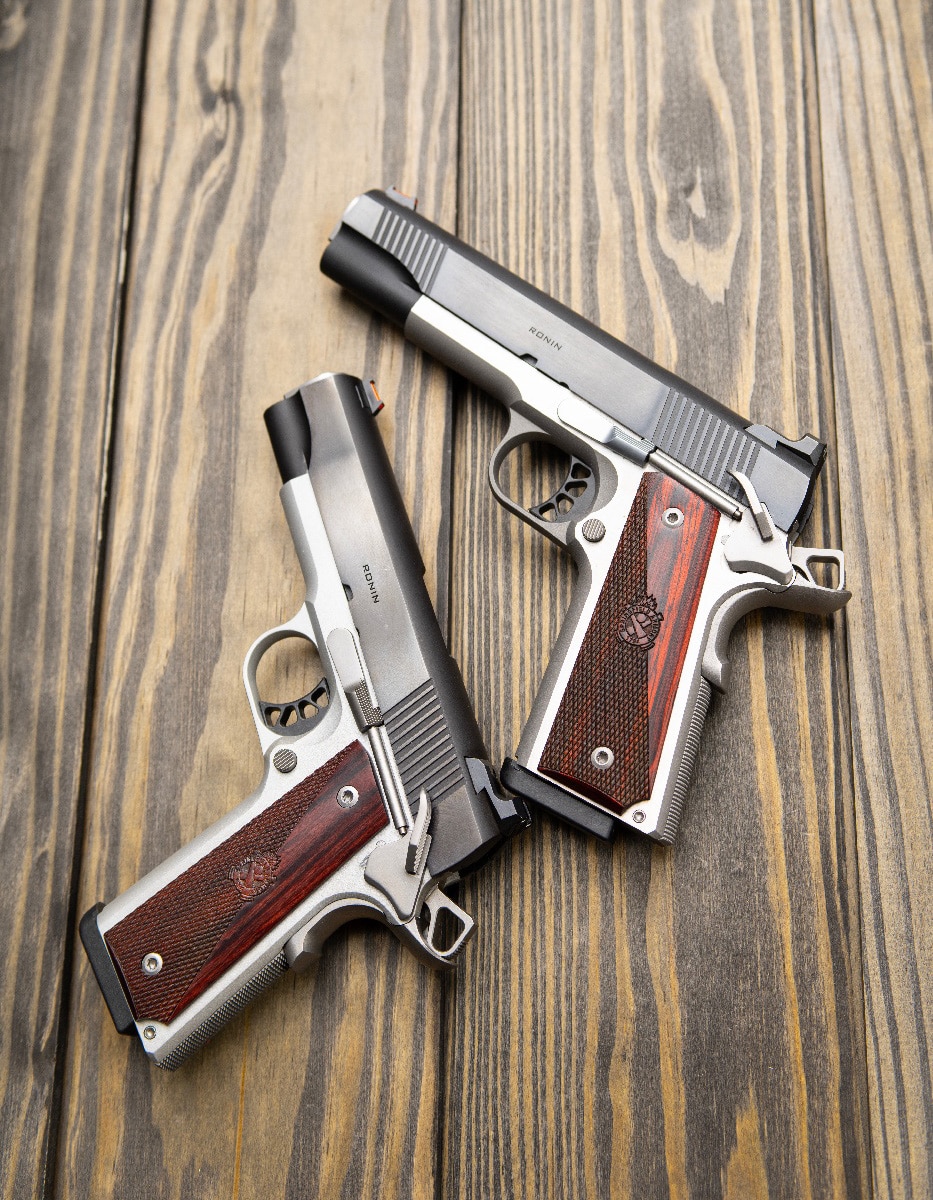
Magazines feature an extended basepad, making reloads faster. The half-checkered and half-smooth grips are designed to offer gripping where you need it. The web of your shooting hand won’t get chewed away with these grips after a few hundred rounds down range. Forward slide serrations make doing a press check a simple task. And the fact there are two EMP variants in the line make it all the more appealing.
Operator-Approved
The Operator line features duty-grade features in a tactical-grade 1911. This is the 1911 you want if you have defensive applications in mind, or just want peace of mind in a get-it-done-style pistol.
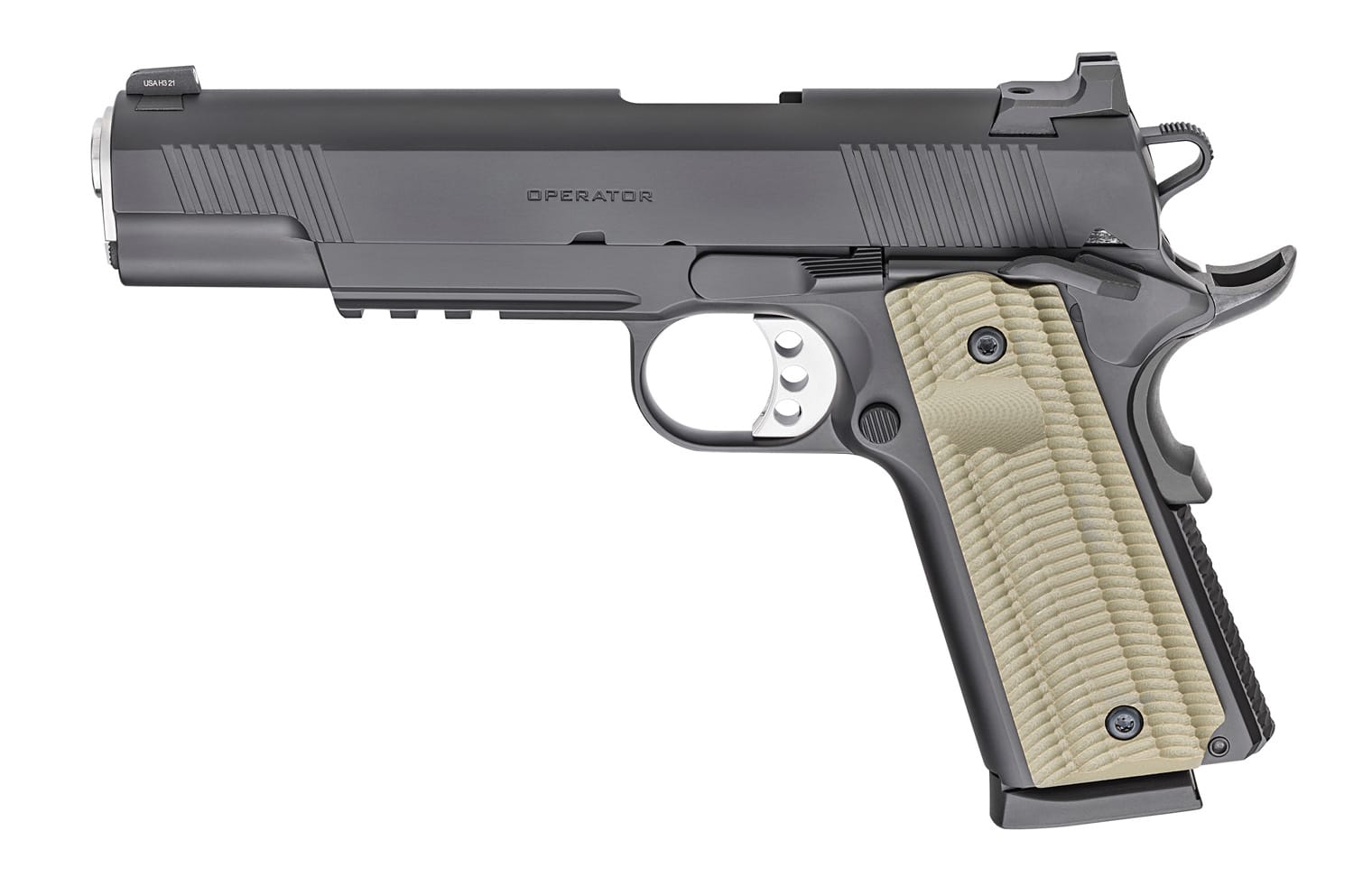
Features like the tactical rack rear and tritium front sights, G10 grips, ambi safety, magazines with bumper pads, forward cocking serrations, and accessory rail make this a serious tool for serious work.
Tactical Response Pistol
The TRP (Tactical Response Pistol) is based on the Professional model designed for the FBI and raised the bar in 1911 performance and features. Full-size models with a 5” barrel and 4.25” barrel models offer a two-piece magwell that makes reloads both fast and intuitive, forward serrations for positive press checks, Gen 2 Speed trigger that offers improved performance, Cerakote finish, comfortable G-10 VZ Grips are just a few of the features.
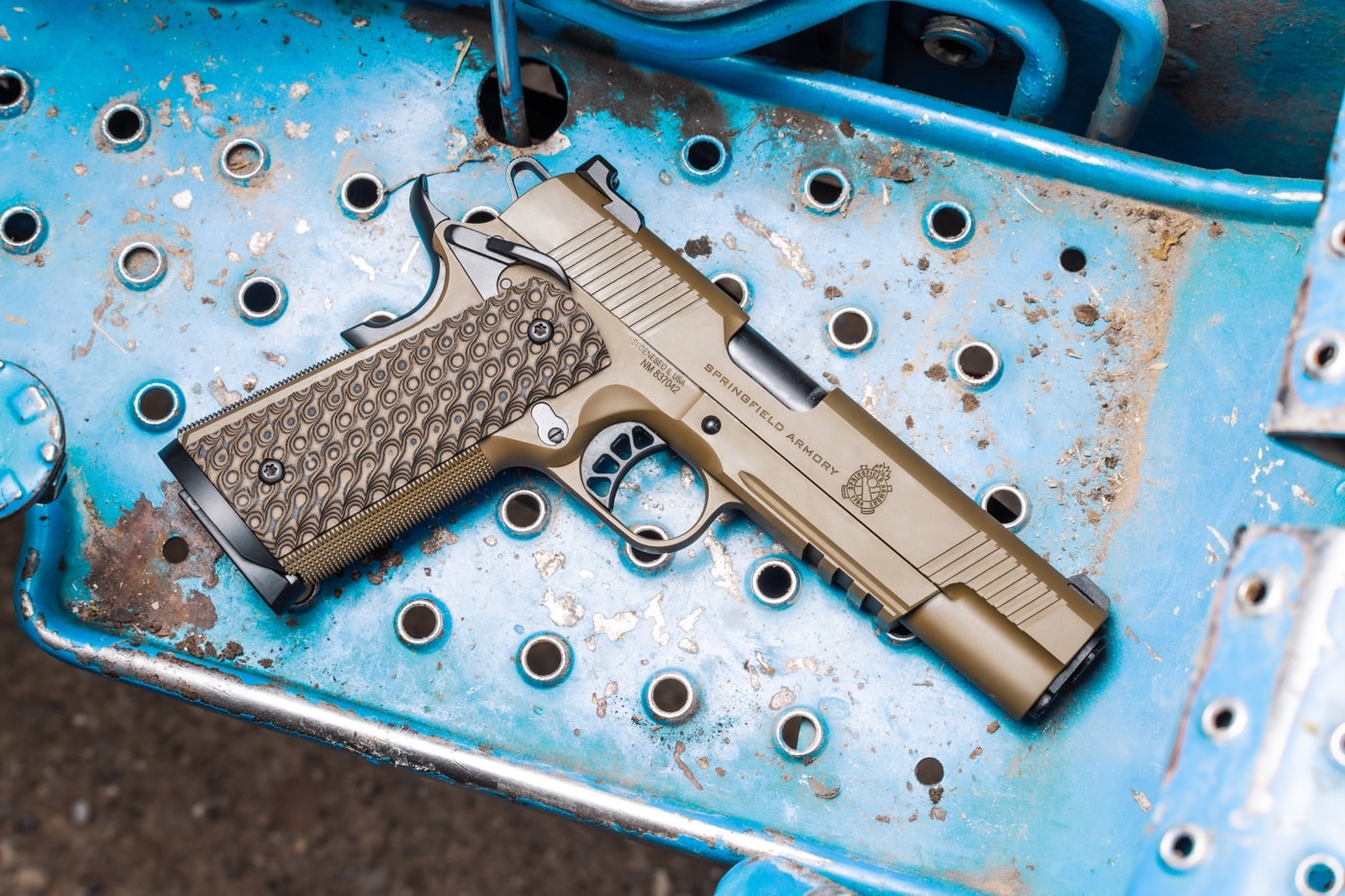
Details like top slide serrations offers a custom touch. The TRP Carry Contour models have a 4.25” barrel and a Carry Countour cut frame for reduced “printing” when concealed carrying. It also has a lightweight aluminum alloy frame.
Emissary Handguns: The 1911 Platform Evolves
The Emissary line is perhaps as close as you can get to a custom 1911 in a factory gun. This is not John Browning’s 1911, but rather an evolution of the design with a squared-off triggerguard, Tri-Top cut slide, flat face trigger, accessory rail, Tactical Rack U-Dot rear sight and Tritium front sight, and a heavy-profile bull barrel. No G.I. barrel bushing on this beast.
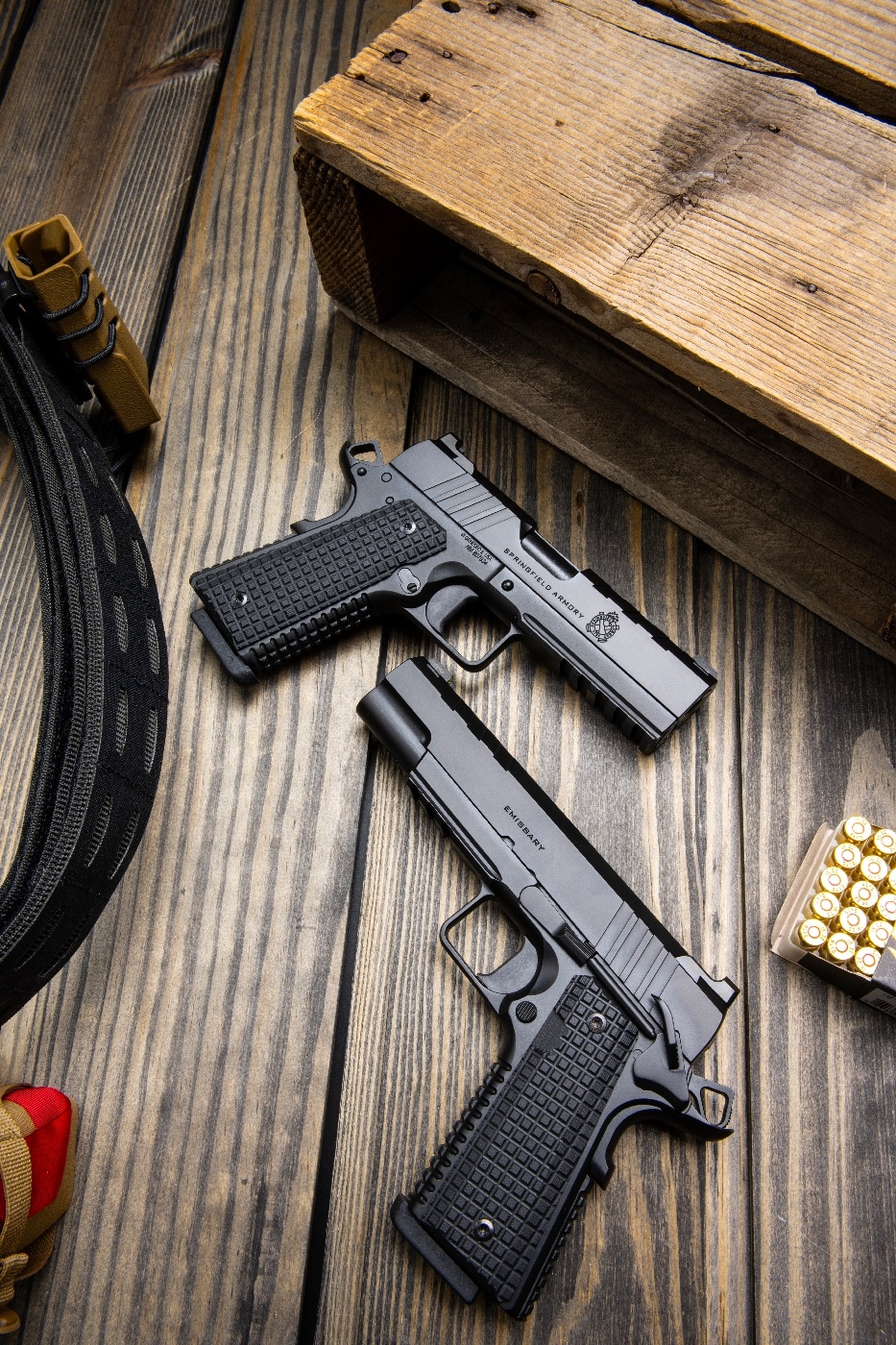
The front grip strap texture is unique as well as functional. I like the thin G-10 grips and the two-tone finish, though there is a solid black for those who like to keep things basic. The Springfield Emissary is available in a 5” barrel model and a 4.25” barrel model ideally suited for EDC.
Which 1911 Is Best For You?
You might have reasons for wanting a 1911 be it concealed carry, competition shooting or a retro piece that reminds you of those who gave the ultimate sacrifice for our country. Maybe that’s why there are so many 1911s to choose from. Life is too short to own only one 1911.
Editor’s Note: Please be sure to check out The Armory Life Forum, where you can comment about our daily articles, as well as just talk guns and gear. Click the “Go To Forum Thread” link below to jump in and discuss this article and much more!
Join the Discussion
Featured in this article
Read the full article here



